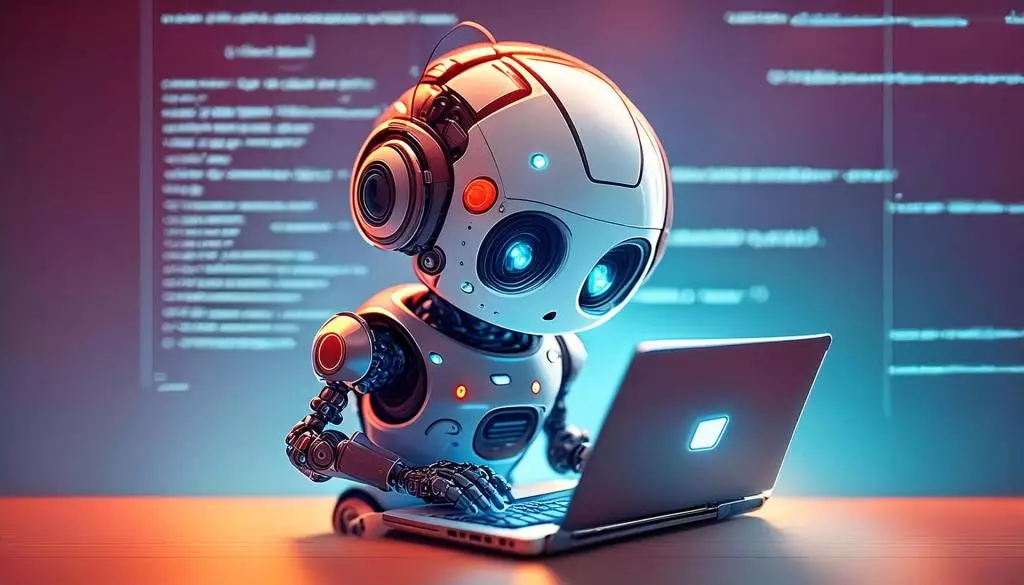The programming landscape is undergoing a seismic shift, transitioning from traditional coding paradigms to more sophisticated AI-powered systems. The advent of “vibe coding,” where developers articulate ideas rather than write extensive lines of code, typifies this transformation. Instantaneously, we are observing a race among tech giants to harness autonomous coding agents that promise to write, debug, and optimize code with minimal human intervention. Google, with its recent beta launch of Jules, is positioning itself as a front-runner in this burgeoning market of artificial intelligence-driven coding solutions.
Google’s Game Changer: Jules Comes to Life
Launched initially as an experimental initiative, Jules operates as an autonomous coding agent, delivering a versatile solution that focuses on asynchronous coding tasks. As Google I/O revealed, Jules is equipped to assist software engineers by fixing bugs, creating tests, and referencing documentation—all while running tasks in the background without monopolizing the developer’s attention. Josh Woodward, vice president of Google Labs, underscores the revolutionary philosophy underpinning Jules: “People are describing apps into existence.” This succinctly illustrates how automation redefines programming tasks, allowing developers to offload routine maintenance while they engage with more complex work.
The operational model of Jules demonstrates a critical shift in the coding paradigm. By providing constrained access to developers during its beta phase, Google invites feedback and fosters innovation through real-world application. Jules’ architecture operates within a virtual machine, showcasing tasks and their reasoning processes, even boasting the ability to offer audio summaries. This level of operational transparency not only aids in understanding but also builds trust in machine-generated output.
The Competitive Landscape: Codex and Beyond
However, Jules is not alone on this battlefield. OpenAI has introduced Codex, a coding agent evolved from its preliminary coding model, which showcases the capability to write and debug code autonomously. This swiftly introduces a competitive angle, as Codex was instrumental in the creation of GitHub Copilot—one of the original code completion assistants. In a recent revelation at Microsoft Build, GitHub announced its own iteration of an asynchronous coding agent, the GitHub Copilot Agent, aligning closely with the functionalities of both Jules and Codex.
The enthusiastic buzz surrounding these innovative tools speaks to a broader trend. As software developers dive deeper into these advanced coding agents, the tech community is witnessing an arms race that is both exhilarating and ominous. The undeniable appeal of using AI-driven tools to manage monotonous coding tasks may redefine the roles of software engineers, elevating them from mere code producers to creative strategists shaping the future of applications.
Developers at the Crossroads of Change
Developers now find themselves at a crossroads, juggling the traditional skills of coding against the backdrop of an AI-enhanced development ecosystem. As tech behemoths like Google and OpenAI roll out increasingly sophisticated tools, the very framework of software engineering is subject to transformation. Google’s toolbox now extends beyond Jules to encompass an array of platforms, including Firebase—an offering aimed squarely at non-coders and aspiring developers.
Firebase’s features, such as the AI Studio and AI Logic, radically democratize application building, inviting users who may lack formal coding experience to experiment with AI features. Jeanine Banks, a prominent figure at Google, highlights this by noting Firebase’s unique proposition as a gateway for newcomers to dip their toes into AI application development. Consequently, this wave of innovation may lead to an influx of diverse talent in tech, creating applications that were previously unimaginable.
A New Era of Collaboration and Innovation
As we stand on the brink of this new era in programming, the implications for collaboration within teams are significant. The ability to harness AI agents like Jules and Codex not only enhances productivity but also fosters a culture of innovation. Developers can now focus more on creative problem-solving and less on rote coding tasks, thereby elevating the exploratory nature of software development.
In this environment, the challenge lies in ensuring that these tools complement human ingenuity rather than replace it. As the tech sphere continues to evolve, the integration of AI in coding platforms will undoubtedly serve as a catalyst for progress—one that alongside cautious optimism, necessitates an ongoing dialogue about the ethics and limitations of AI in critical decision-making scenarios. In this context, companies must orient their efforts toward crafting AI solutions that empower their human counterparts, fostering an ecosystem where creativity and automation coexist harmoniously.

